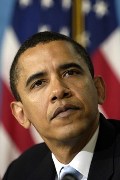Seventh Circuit Week in Review: Sentencing Thought Crimes
 The Seventh Circuit had four new opinions in criminal cases last week. Two dealt with sentencing, one with interrogation, and one with a search. I’ll cover the cases in that order.
The Seventh Circuit had four new opinions in criminal cases last week. Two dealt with sentencing, one with interrogation, and one with a search. I’ll cover the cases in that order.
In United States v. England (No. 08-2440), the defendant was charged with being a felon in possession of a firearm. While being held pending trial, England learned that his brother-in-law Robert was cooperating with the police. In telephone conversations with his father (which were apparently recorded by the police), England expressed feelings of violent rage against the brother-in-law, saying at one point, “[G]o relay a message to Robert [that if he] shows up to court, when I walk outta prison in fifteen years, I’m ‘onna [expletive] murder his [expletive].”
After being convicted of the original charge, plus three new obstruction-of-justice types of charges, England was sentenced to 262 months in prison. An earlier appeal and remand for resentencing resulted in a new sentence of 210 months. Curiously, along the way, the sentencing judge “found” that England would have committed the crime of attempted murder of Robert or one of the other witnesses had he not been in custody before trial. Indeed, this finding seemed to play a determinative role in the selection of a sentence. From the standpoint of substantive criminal law, this was a strange move. As the sentencing judge acknowledged, England took no “substantial step” — in fact, no step of any kind — towards the accomplishment of the murder that he supposedly intended. There is a sense, then, in which England was punished based on little more than evil thoughts. And, as any first-year law student will tell you, it is black-letter criminal law that you cannot be punished for thoughts alone.



 (This is the third in a series of posts on Fairey v. Associated Press. See below for other posts in the series.)
(This is the third in a series of posts on Fairey v. Associated Press. See below for other posts in the series.)